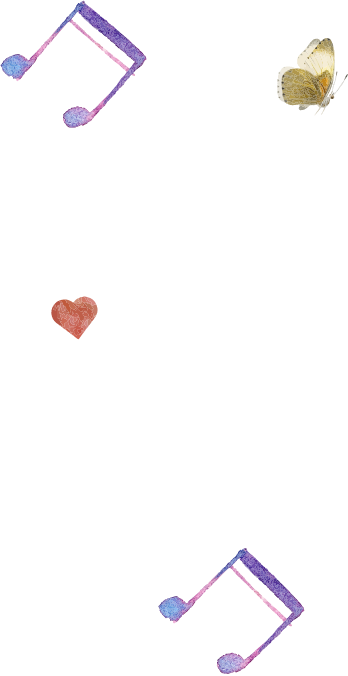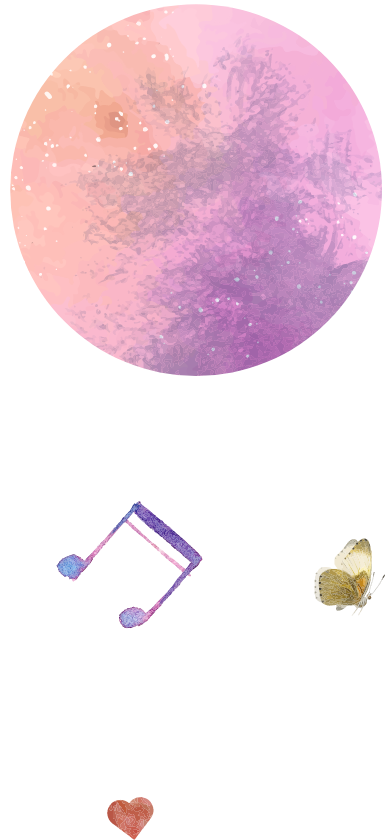Song is the most suitable means for childrens’ initiation into the world of music. Language, culture, rhythms, instruments, sounds of every type are transferred from generation to generation through songs. If only the school allowed a little more time for the arts, how much the children and societies of the world could benefit.
Mariza Koch, artist and vocalist with a huge career, almost simultaneously with her artistic path, built a rich and active role as a music educator. With her resourceful talent she became a companion, a guiding teacher, and a guide to the world of music for children. The Center of Experiential Music, Movement, and Word, that she herself founded, housed her music educational concerns and it provided a further reason for her to write more songs and to continue to cultivate her relationship with children. As she herself says: her interaction with children illuminated her career more than anything else.
The songs of Mariza Koch provide aids for the learning of the Greek language, and the deeper understanding of words, phrases, smells and colors of Greece. It is as if every village, every island, every place, every flower has been ingrained into her songs. They breathe the aromas of Greece, connecting people with places and cultures. These songs provide the best way for learning and understanding the Greek language, especially for children for whom Greek is the second or third or heritage language.
Mariza Koch has provided the right of use for all of the music pedagogical content to the Department of Music Studies of the Ionian University and the Greek Society for Music Education (G.S.M.E.). The Ionian University has the pleasure of hosting the digital services entitled: “Singing Greek with Mariza Koch’s songs”. We thank her for her endless contribution to Greek music.

Mariza Koch’s «Greek through song» is not only one of the most creative and effective tools for the teaching and learning of the Greek language; it is a musical delight.
Working with children aged 4 to 12, she began to develop her own materials for teaching Greek through song. The lyrics of the songs combined grammar and pronunciation exercises with a charming fantasy that has always been a characteristic of Ms. Koch’s compositions. And although the CD is aimed primarily at a younger age-group, students of Modern Greek at Cornell University who listened to the songs responded with great enthusiasm to them.
«Greek through song» is not a method for learning Greek. It teaches some grammatical points, but it does much more. It is a completely original musical and linguistic journey into Modern Greek music and language that no child or adult who has retained a child’s sense of play and fantasy could possibly resist.

The teaching of the Greek language to non-native speakers was until recently an incomplete and imperfect form of art. Imperfect, because no one has ever had the resources to teach the material in its entity, and also because the grandeur of the language exists not only mentally and emotionally in a sense for accuracy and richness, but also in musicality. Mariza Koch, that faithful servant of Greek language and music, has finally offered us this wonderful tool for the teaching and learning of the Greek language, not only as a means of communication but also of entertainment and aesthetic enrichment. Each of her original songs focuses on specific grammatical points in a manner that brings forth all the joy and richness of Greek rhyme and rhythm.
Unlike other examples of Greek children’s music, it is pedagogically informed and precisely suited for the teaching of the language to non-Greek speakers. Though primarily oriented towards a younger learner, there is nothing to prevent the “innocent” grown up from thoroughly enjoying these simple but enticing melodies. The humor of the lyrics is, as always, charming and delightful and quintessentially Mariza Koch.
«With Mariza I sing, I learn Greek» is her latest gift to all lovers of the Greek language and music.

Music can serve as an important educational tool which, among others, can create multiple paths of communication between different cultures. Furthermore, songs can inspire and motivate students and add variety in the process of teaching and learning.
The song collection «With Mariza I sing, I learn Greek» constitutes a novel idea, a fresh and exciting teaching proposal that can be a useful educational tool, a sort of magic wand in the hands of educators. Mariza Koch, the inspirational creator, lyricist and composer, wrote the songs in this collection through a careful look, an insight at the interests and needs of her students and subsequently of all other language learners.
The songs of Mariza Koch open to students and educators a new horizon for the understanding of spoken word: the familiarity with the new vocabulary becomes a challenge and a game; the conquest of grammar and syntax rules gets attractive and interesting. Educators can use the songs to foster understanding and enhance the written and spoken word of their students. Additionally, songs can serve as a cultural resource that can offer access to knowledge, understanding and appreciation of the Greek culture: initiation to Greek musical modes, acquaintance with the everyday life of Greece, Greek habits and customs, and familiarity with the history and tradition of Greece.
Thanks Mariza! May your songs travel us with them!

Mariza Koch continues to surprise us pleasantly. This time she contributes a new educational tool, which consists of songs that have already been used successfully for teaching Greek to students at Cornell University as well as to non Greek speaking students in Greece.
The whole project fills a gap in the learning of the Greek language, which in the hands of educators can serve as a valuable and helpful guide in the teaching and learning of Greek to different age groups of students. Music educators can also use and apply the material in intercurricular teaching and the connection of music with language in the context of the new curricula.

Generations of young people travel through time with Mariza’s “beautiful songs”. This new song collection is a heritage for future generations. It is a tool to learn the language through harmony and instrumentation of the emotions. The surreal verse and the playfulness of the words are powerful. They unleash both the teacher’s and the students creativity, they stimulate interest and excitement. The descriptive structure introduces discussion about traditional professions while at the same time teaching grammar elements. The book is aimed at both children and adults; through music the brain is engaged to listen, register and process knowledge.



